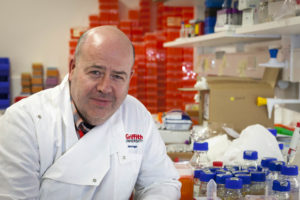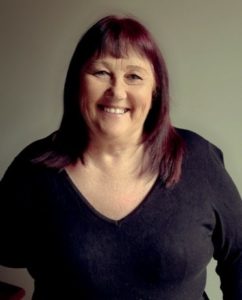The Victorian Cancer Biobank, one of the largest cancer biobanks in Australia, has received $6 million in funding by the Victorian Government through the Victorian Cancer Agency to continue its vital work over the next three years in collecting biospecimens of cancer tissue and blood and clinical data for research studies and clinical trials, it was announced today.
With more than 450,000 biospecimens, the Victorian Cancer Biobank has supported more than 300 research projects since its inception in 2006, and thanks to this funding, will continue to facilitate scientific research and discovery to directly contribute to improved patient outcomes.
General Manager of the Victorian Cancer Biobank Dr Wayne Ng said the Biobank is critical for many researchers to complete their work and make breakthroughs.
"We provide a unique open access collaborative cancer biobanking infrastructure that gives researchers easy access to high quality biospecimens and clinical data – providing a bridge to support ‘bench to bedside’ research to accelerate the delivery of new treatments, diagnostics and prevention strategies.
"We aim to provide a viable solution for scientists to find the quality and number of biospecimens they need to make world-class discoveries, accelerating cancer research for the development of better patient diagnostics and therapies that will improve the quality of life for patients and families affected by cancer and other chronic diseases," Dr Ng said.
"Thanks to this funding from the Victorian Cancer Agency, we will be able to continue our work in supporting the translation of cancer research breakthroughs into clinical applications in Victoria, Australia, and internationally."
Minister for Health Martin Foley said the Victorian Government is backing our world-leading researchers to make breakthroughs that will change and save lives.
"The Victorian Cancer Biobank plays a critical role in supporting life-saving cancer research and clinical trials in Victoria to speed up improved outcomes for all people with cancer."
 Professor Michael Jennings. Credit Griffith University
Professor Michael Jennings. Credit Griffith University
Professor Michael Jennings and his research team at Griffith University in Queensland accessed samples from the Victorian Cancer Biobank, saying they would not have been able to conduct our research without them.
"Without access to the Victorian Cancer Biobank, we would have had to establish our own patient sample collections, which would have been very expensive and time consuming and would have delayed our research outputs and impact considerably," Professor Jennings said.
Professor Jennings’ research is investigating a sugar, called Neu5Gc, that has been found in multiple tumour types and seems to be produced by cancer cells but not by healthy cells. They now hope to use their findings to develop a test for the early detection and monitoring of ovarian and breast cancer by detecting Neu5Gc levels.
"We are also interested to see if other cancers also show elevated levels of Neu5Gc compared to cancer-free individuals, and we hope that our tests may be used to monitor cancer progression so that the effectiveness of treatment can be evaluated," Professor Jennings said.
"Thanks to the Victorian Cancer Biobank we have published one manuscript and have another manuscript submitted, have been awarded over $1 million in funding for our research, and we are now working with the Australian medical diagnostics company BARD1 to bring our cancer diagnostic tests to the clinic as soon as possible."
 Ms Wendy Harrold, Tissue Donor
Ms Wendy Harrold, Tissue Donor
Wendy Harrold donated her breast tissue to the Victorian Cancer Biobank after a preventative double mastectomy and reconstruction in 2018, which followed the loss of her mother to breast cancer 42 years ago and subsequently finding out that Wendy too had a breast cancer gene called PALB2
"It was a challenging journey, but I knew it would change my life. I wouldn’t have to ever worry about getting breast cancer anymore. It also was an opportunity for me that my mum never had all those years before. If more people knew about donating tissue for research it would be a really great thing – it can help a lot of other people for years to come."
In April this year, Wendy had her ovaries removed as people with the PALB2 are more susceptible to developing ovarian cancer.
"I have watched how far research has come over the years since my mum was diagnosed. Without research and funds to do so, we wouldn’t have cures, treatments or medications for so many diseases and illnesses today."
The Victorian Cancer Biobank is a consortium through long term partnerships between Cancer Council Victoria as the lead agency, and five major health precincts in Melbourne – Austin Health, Eastern Health, Melbourne Health, Monash Health and Peter MacCallum Cancer Institute.
If you would like more information about the Victorian Cancer Biobank or are interested in donating tissue, please visit: https://viccancerbiobank.org.au/
About the Victorian Cancer Biobank
The Victorian Cancer Biobank is an open-access, not-for-profit tissue resource established by the Victorian Government, Australia and our partnered health care providers to facilitate translational research. The Victorian Cancer Biobank provides cancer researchers with a diverse selection of high-quality biospecimens and derivatives, comprehensively annotated with de-identified clinical outcome data.
The Victorian Cancer Biobank consortium consists of six members with Cancer Council Victoria as the lead agency, with the ability to conduct biobanking activities at 26 hospitals across the state. The central operations of Victorian Cancer Biobank are strategically co-located with the Victorian Cancer Registry at Cancer Council Victoria, providing a unique opportunity to link the dataset to the Victorian Cancer Registry that enables annotation of high quality clinical data to the donated biospecimens.
Find out more at: https://viccancerbiobank.org.au/
AUTHOR: THEA CARGILL